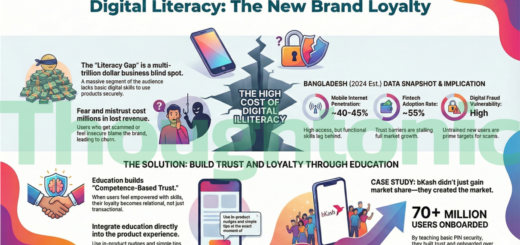The Evolution of Generation Technology: A Comprehensive Analysis of Adoption, Impact, and Future Trends
Technology has evolved at an unprecedented pace over the past century, with each generation experiencing distinct digital revolutions that shape their behaviors, expectations, and interactions. From the rise of television and landline phones for Baby Boomers to the AI-driven, metaverse-immersed world of Generation Alpha, technological advancements have redefined communication, work, education, and entertainment.
This report provides an in-depth exploration of generational technology adoption, analyzing key trends, behavioral shifts, and future projections. We examine statistical data, compare generational preferences, and forecast emerging innovations that will define the next decade.
Defining Generational Technology Adoption
Baby Boomers (1946–1964): The Analog-to-Digital Transition
Key Technologies: Television, rotary phones, early personal computers (IBM, Apple II), VHS, fax machines.
Behavioral Impact: Baby Boomers were the first generation to experience mass media but adapted to digital technology later in life. They value reliability and face usability challenges with newer tech.
Key Statistics:
- 59% own smartphones, compared to 96% of younger generations (Pew Research, 2023).
- 72% use Facebook, making it their dominant social platform (Statista, 2023).
- Only 28% use mobile banking, preferring in-person transactions (FDIC, 2023).
- 47% struggle with AI-powered customer service tools (Salesforce, 2023).
Future Trends:
- Increased adoption of telehealth and wearable health monitors (projected 40% growth by 2027, Deloitte).
- Voice-assisted devices (e.g., Amazon Echo) for simplified tech interaction.
Generation X (1965–1980): The Bridge Between Analog and Digital
Key Technologies: Dial-up internet, email, Windows PCs, early mobile phones (Nokia), CDs/DVDs.
Behavioral Impact: Gen Xers were the first to use computers in the workplace but remain pragmatic about tech, favoring functionality over trends.
Key Statistics:
- 91% own smartphones, but only 68% use them for mobile payments (Federal Reserve, 2023).
- 78% use online banking, yet 52% still visit physical branches (J.D. Power, 2023).
- 65% prefer laptops over tablets for work (Gartner, 2023).
- Top platforms: YouTube (83%), Facebook (75%), LinkedIn (49%) (eMarketer, 2023).
Future Trends:
- AI-assisted productivity tools (e.g., Microsoft Copilot) for workplace efficiency.
- Hybrid work tech (Zoom, Slack) remains essential as 60% work remotely at least part-time (Gallup, 2023).
Millennials (1981–1996): The First Digital Natives
Key Technologies: Broadband internet, smartphones (iPhone debut in 2007), social media (Facebook, Instagram), cloud computing.
Behavioral Impact: Millennials drove the gig economy, mobile shopping, and fintech disruption. They prioritize convenience and digital-first experiences.
Key Statistics:
- 93% own smartphones, with 87% using them for online shopping (eMarketer, 2023).
- 54% prefer mobile payments (Apple Pay, Venmo) over cash (Worldpay, 2023).
- Top platforms: Instagram (78%), YouTube (76%), TikTok (55%) (Statista, 2023).
- 62% have used Buy Now, Pay Later (BNPL) services (McKinsey, 2023).
Future Trends:
- Dominance in cryptocurrency adoption (33% own crypto vs. 9% of Boomers) (Pew, 2023).
- AI-powered personal finance tools (e.g., robo-advisors) expected to grow by 25% annually (Forrester).
Generation Z (1997–2012): The Mobile-First, AI-Enhanced Generation
Key Technologies: 5G, TikTok, AI chatbots (ChatGPT), AR filters (Snapchat), blockchain (NFTs).
Behavioral Impact: Gen Z has shorter attention spans, prefers visual content, and embraces AI-driven personalization.
Key Statistics:
- 98% own smartphones, with 75% using TikTok as a search engine (Forrester, 2023).
- 62% interact with AI chatbots for customer service (Salesforce, 2023).
- 55% have made purchases via social commerce (Instagram, TikTok Shop) (eMarketer, 2023).
- 48% use AR/VR for shopping (e.g., virtual try-ons) (McKinsey, 2023).
Future Trends:
- AI influencers and virtual celebrities (40% of Gen Z follow digital avatars, Wunderman Thompson).
- Metaverse adoption for socializing and gaming (30% expected to use VR daily by 2025, IDC).
Generation Alpha (2013–Present): The AI-Native Generation
Key Technologies: Voice AI (Alexa, Siri), AI tutors (Khanmigo), metaverse learning (Roblox Education), smart toys (Moxie Robot).
Behavioral Impact: The youngest generation is growing up with AI as a natural part of life, shaping education and entertainment.
Key Statistics:
- 40% of children under 12 use voice-activated devices (Juniper Research, 2023).
- 60% interact with AI daily (McKinsey, 2023).
- 70% of parents report their kids learn via YouTube Kids or educational apps (Common Sense Media, 2023).
- 55% of Gen Alpha households own a tablet (Nielsen, 2023).
Future Trends:
- AI-integrated classrooms (50% of U.S. schools expected to adopt AI tutors by 2026, Gartner).
- Rise of “phygital” (physical + digital) toys and interactive learning.
Comparative Analysis: Generational Tech Behaviors
| Metric | Baby Boomers | Gen X | Millennials | Gen Z | Gen Alpha |
| Smartphone Ownership | 59% | 91% | 93% | 98% | 55% (Tablets) |
| Social Media Usage | 72% (Facebook) | 78% | 89% | 95% | 40% (YouTube Kids) |
| Mobile Payments | 28% | 68% | 54% | 73% | N/A |
| AI Interaction | 12% | 35% | 58% | 62% | 60% |
| VR/AR Engagement | 5% | 18% | 32% | 48% | 65% (Projected) |
Emerging Trends & Future Projections
- AI & Hyper-Personalization
- By 2027, 70% of consumer apps will integrate generative AI (Gartner).
- AI-driven healthcare for aging Boomers (50% growth in wearable health tech, Deloitte).
- The Metaverse & Digital Identity
- 30% of Fortune 500 companies will have metaverse presence by 2026 (Accenture).
- Digital fashion and NFT avatars ($50B market by 2030, Morgan Stanley).
- Sustainable & Ethical Tech
- 65% of Millennials/Gen Z boycott brands with poor digital ethics (Deloitte).
- Solar-powered devices and e-waste recycling ($100B industry by 2030, Statista).
- Privacy & Security Shifts
- Gen Z demands transparency: 80% avoid apps with poor data policies (Cisco, 2023).
- Decentralized identity (blockchain-based logins) to grow by 200% (McKinsey).
Conclusion & Strategic Recommendations
The generational divide in technology adoption presents both challenges and opportunities for businesses, educators, and policymakers. Key takeaways include:
- Boomers & Gen X need intuitive, accessible tech (voice assistants, telehealth).
- Millennials drive fintech and mobile commerce innovation.
- Gen Z is reshaping marketing via AI and social commerce.
- Gen Alpha will redefine education through AI and metaverse learning.
C. Basu.



